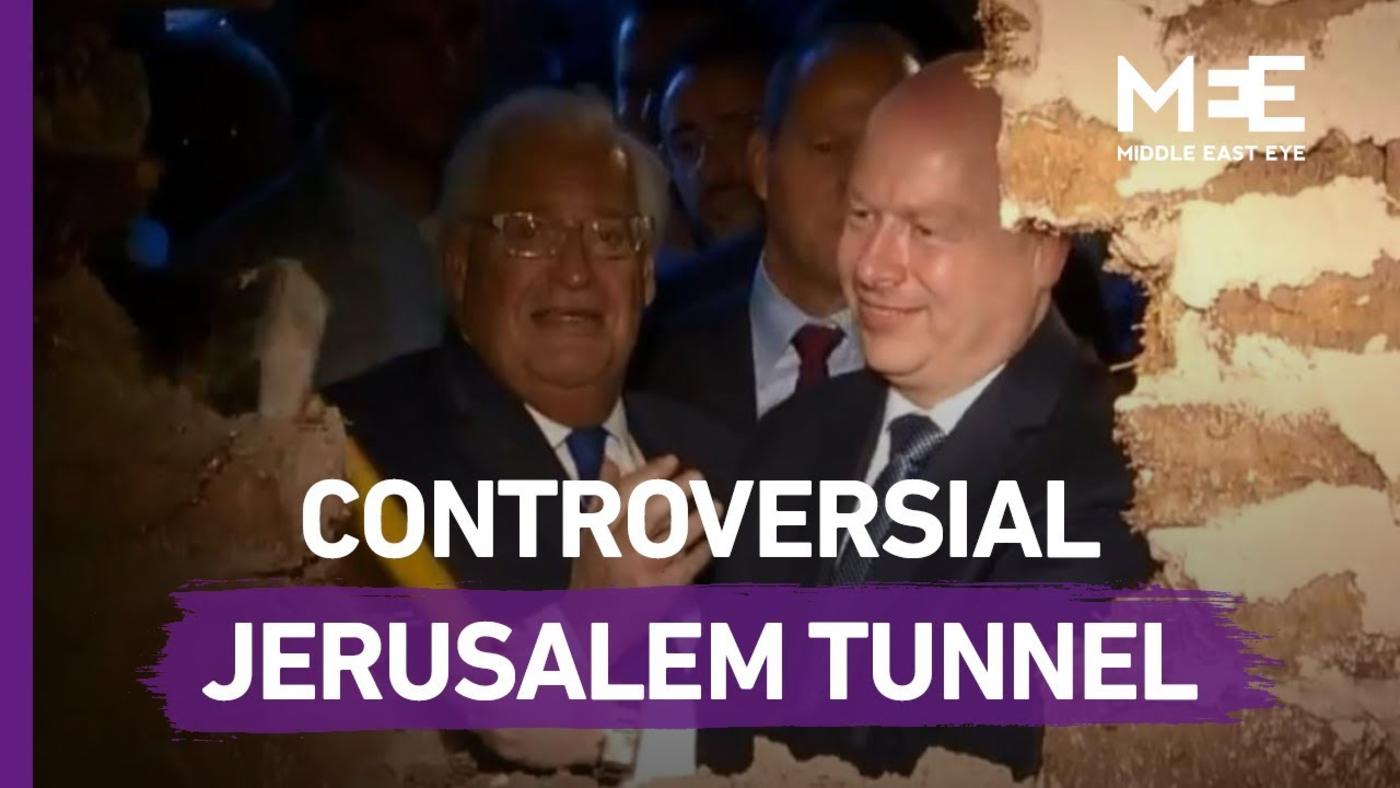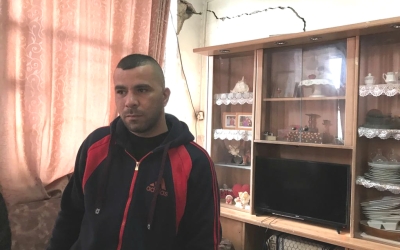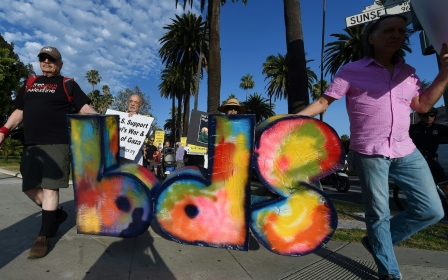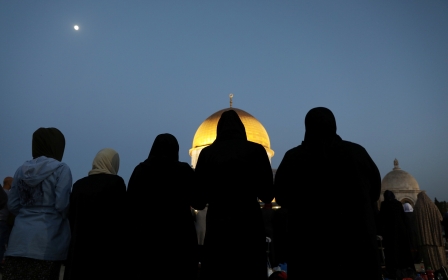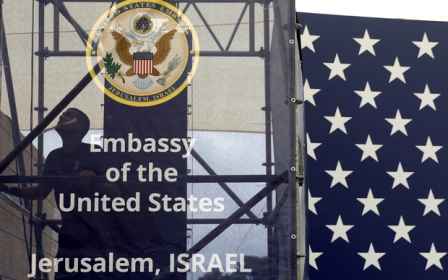US envoys criticised for attending inauguration of controversial Jerusalem tunnel
US ambassador to Israel David Friedman and the White House Middle East envoy Jason Greenblatt attended the opening of a disputed tunnel under the Palestinian neighbourhood of Silwan in occupied East Jerusalem on Sunday.
The Palestinian Authority and the Israeli left-wing group Peace Now have condemned the senior US diplomats’ attendance at the inauguration of the controversial site.
A protest taking place outside of the ceremony was reportedly repressed by Israeli forces, who violently detained at least one demonstrator.
The tunnel project, called the Pilgrimage Road by the Israeli government, has been built over the past eight years under the sponsorship of Israeli settler association Elad. It passes under the Palestinian-majority neighbourhood of Wadi al-Hilweh in the Old City.
Stay informed with MEE's newsletters
Sign up to get the latest alerts, insights and analysis, starting with Turkey Unpacked
Since 1995, the Israel Antiquities Authority has been excavating sites in Wadi al-Hilweh with the support of settler foundation Ir David, officially in order to create a new tourist attraction and find evidence of the existence of the three-millennia-old "City of David" in the area.
The completion of the new "City of David" project, including a Roman-style "avenue" built over streets that have been home to generations of Palestinians, would cement the position of the 450 illegal settlers currently living in Silwan under heavy armed guard, and marginalise the 10,000 Palestinian residents of the neighbourhood.
The PA has condemned the project as part of “imperialistic Judaisation plans”, and accused US President Donald Trump of supporting the "settlement enterprise led by the far-right in the occupation state” due to Greenblatt and Friedman’s attendance.
Greenblatt denounced the PA's statement as “ludicrous”.
“We can’t “Judaise” what history/archaeology show. We can acknowledge it and you can stop pretending it isn’t true! Peace can only be built on truth,” he said on Twitter.
Peace Now described the US officials’ attendance as “no less than American recognition of Israeli sovereignty in the sensitive area of the Holy Basin”.
“The tunnel, the way it was dug and its geopolitical ramifications, are trampling on the reputation of Jerusalem as a city sacred to all religions and belonging to all its inhabitants,” the group said on Sunday.
Damage to Palestinian homes
Palestinian residents of the Silwan area have protested the serious damage to their homes caused by the archaeological excavations linked to the tunnel project, but Jerusalem authorities have rejected those claims.
The diggings have led to confrontations between Palestinian residents and Israeli settlers participating in the project, with several Palestinian families forced to evacuate their homes due to the extensive structural damage.
The tunnel is designed to give visitors a sense of the Jewish pilgrimage from Birkat al-Hamra or "Shiloah Pool" in the south of Wadi al-Hilweh, where worshippers can “purify” themselves before they ascend to the Western Wall.
Tours go underground through the ancient water channels of Silwan, and into 400m of what was once a Roman sewerage network.
It costs 44 Shekels ($13) for half a tour that ascends from Birkat al-Hamra to the Western Wall through the tunnel.
Emek Shaveh, an Israeli archaeological NGO, said in a report that these tunnels "create an underground Jewish-Israeli city and turn... settlers into its natural inhabitants and the Palestinian residents... into a temporary presence".
Critics have argued that the tunnel, as well as Israeli plans to build a cable car going above the Old City, also aim to limit tourists' presence in areas of East Jerusalem populated by Palestinians - not only affecting the livelihoods of Palestinians who rely on tourism in these areas, but also minimising reminders to international visitors that some 300,000 Palestinians live in the city.
A local guide who spoke to MEE last year said the excavations have not found one single artefact from the King David era, which dates back 3,000 years.
What has been found are artefacts from various extinct empires, mainly Arab and Muslim, which have controlled Jerusalem over the centuries.
Artefacts have also been found from the period of the Second Temple, which dates back to the first century BCE, an important period of history for Jews.
Middle East Eye delivers independent and unrivalled coverage and analysis of the Middle East, North Africa and beyond. To learn more about republishing this content and the associated fees, please fill out this form. More about MEE can be found here.


